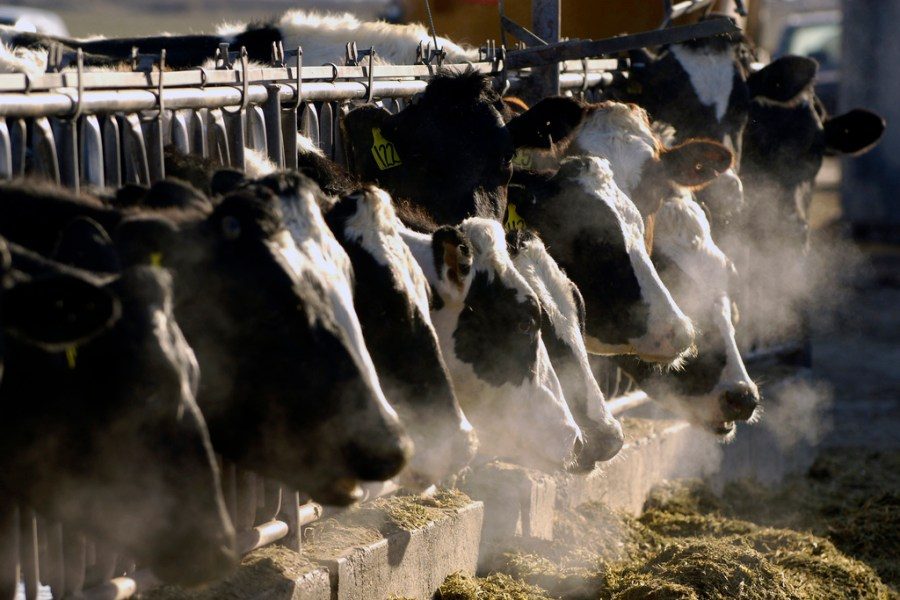Two dairy workers in California have been infected with the state’s first human cases of bird flu, federal and state health officials said.
The late Thursday announcement of two confirmed cases of H5N1 bird flu came after California officials said they were investigating a potential human infection.
Both cases were found at different locations in the Central Valley region, and there is no known link or contact between the two.
The Centers for Disease Control and Prevention said the lack of a known connection suggests the workers were directly infected by dairy cows.
Both workers experienced mild symptoms, including conjunctivitis, and neither reported respiratory symptoms. Neither worker was hospitalized.
Outbreaks of H5N1 bird flu among California dairy herds were first reported in August. Including this most recent case, 16 human cases of the virus have been reported in the United States this year. Previous cases were identified in workers in Texas, Colorado and Michigan.
The CDC continues to characterize the risk posed to the general public by the outbreak as “low,” but farmworkers are at higher risk. Health officials are recommending they wear personal protective equipment such as respirators, eye protection and gloves.
Six of the 16 reported human cases have been linked to exposure to sick or infected dairy cows. Nine cases had exposure to infected poultry.
However, the source of infection for a case in Missouri has not been determined, and the agency is continuing to investigate potential person-to-person spread after several people who had close contact with the confirmed case developed flu-like symptoms.
“Ongoing health checks of individuals who interact with potentially infected animals helped us quickly detect and respond to this possible human case. Fortunately, as we’ve seen in other states with human infections, the individual has experienced mild symptoms,” Tomás Aragón, director of the California Department of Public Health and state public health officer, said in a statement after the first case was announced.
“We want to emphasize that the risk to the general public is low, and people who interact with potentially infected animals should take prevention measures,” Aragón said.
As of Thursday, 254 herds across 14 states have been infected though experts suspect that’s a severe undercount. Many farmers don’t want to test their herds, and most states are not forcing it.

